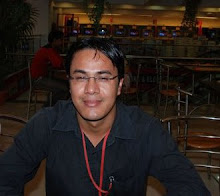Tuesday, January 8, 2008
Blockbuster - Baby on sale for Rs. 100
I came across a story of a woman peddling her newborn daughter at Rs. 100 in the front page of the Indian Express. The heading caught my attention at once- be its bizarreness or serious social disparity. The maternity ward in the Government Rajaji Hospital, Madurai in Tamil Nadu has become some kind of a theater running a blockbuster movie where there is a huge crowd and long queue to get tickets for the show. Crowds gather to see the strange saleswoman, Panju, who is selling her just-a-few-hours-ago-born daughter. She repeatedly keeps saying, “Take away my child and give me Rs. 100. How will I feed now and when she grows up? ” Dozens of people who gather to see the women are least concerned about the plight of the woman. Not even a single person among the crowd sheds sympathy by imagining how they will feel by selling their child. They just appear and disappear from the scene unconcerned and unbothered by the plight of the woman, but not before amusing her. Some good-hearted fellows give Panju advice and mental supports to help her bear the burden – become a domestic help. This is some advice that hardly affects Panju but it will affect beyond imagination to any normal humans. Such generous remarks and advice do not make any difference to dozens and hundreds of people like Panju whose ears are dampened by such sweet words they hear each new day from people they meet. Not even a single person among the crowd thinks of asking the plight of the woman. All they care is to experience the bizarre incident, but none realizes that bizarreness is the second step after tragedy. Panju actually tried to leave her child in the cradle at the hospital but the interception by a hospital’s watchman compelled her to take up this step. Situation is brought to somewhat normalcy when some women come for her rescue. Investigation has found that Panju’s husband passed away two months before from AIDS, and she also has HIV positive. Destiny led her to take up construction works in the seventh month of pregnancy. It is not known whether the new-born baby is also infected from the virus or not, and it will be known only after six weeks. When reality comes to the picture, the sea of crowds suddenly bears a devastated look. May be the audiences are too busy with their personnel works. For some, Panju’s story will make a nice dinner-time joke – selling a baby at Rs. 100. After few days or months, another heading – A woman consumed poison, kills daughter and self in Madurai- may fill the front paper of the same newspaper. By then, the same crowds who have gathered this morning in front of the hospital will not even remember that it is the same woman peddling her daughter. How can they remember her since they don’t even know the name of the saleswoman? It will be just another news of the day. We can’t even imagine of the separation of our dear ones, hence Panju’s selling her daughter turns out to be a great joke. When things are beyond the reach of our imagination, they become jokes. It is rather funny how the bridge between the rich and the destitute has been built naturally, and how two different species are made look-alike. We are also not wrong because we have the conscience to understand that these people are getting used to bear such pains. The world will wear a new look when our conscience discovers something new someday that people like Panju also have similar hopes or even bigger than ours.
Subscribe to:
Post Comments (Atom)

No comments:
Post a Comment